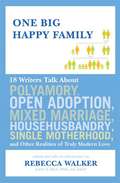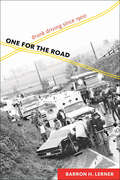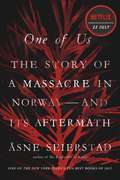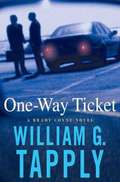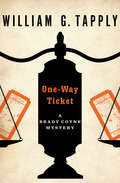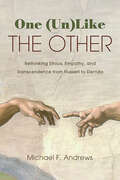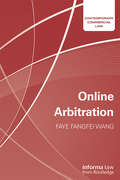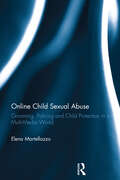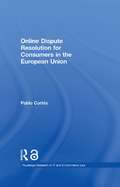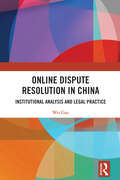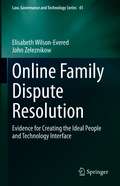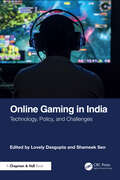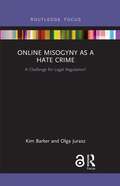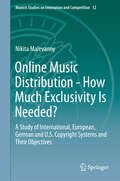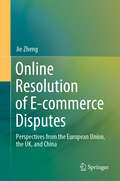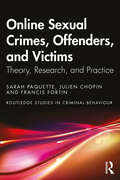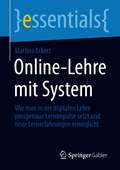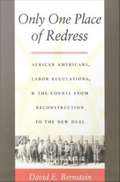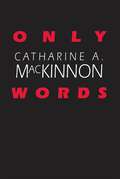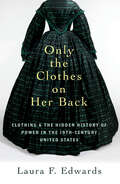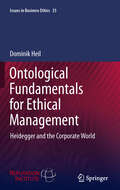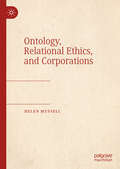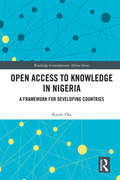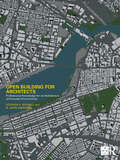- Table View
- List View
One big happy family: 18 Writers Talk About Polyamory, Open Adoption, Mixed Marriage, Househusbandry, Single Motherhood, and Other Realities of Truly Modern Love
by Rebecca WalkerEdited by bestselling author Rebecca Walker, this anthology invites us to step into the center of a range of different domestic arrangements and take a good look around. From gay adoption to absentee fathers, from open marriages to green-card marriages, the reality of the American household has altered dramatically over the last three decades. With changing values and expectations, fluid gender roles, and a shifting economy, along with increase in infertility, adoption, and the incidence of mixed-race couples, people across the country are redefining the standard arrangement of family life. In a collection of eighteen honest, personal, and deeply affecting essays from an array of writers, One Big Happy Familyoffers a fresh look at how contemporary families are adapting to this altering reality. Each writing from the perspective of his or her own unique domestic arrangements and priorities, the authors of these essays explore topics like transracial adoption, bicultural marriage and children, cohousing, equal parenting, and the creation of virtual families. Dan Savage writes about the unexpected responsibilities of open adoption. Jenny Block tells of the pros and cons of her own open marriage. ZZ Packer explores the ramifications of, and her own self-consciousness about, having a mixed-race child. asha bandele writes of her decision to have a child with a man in prison for life. And Min Jin Lee points to the intimacy shared by a mother and her child's hired caregiver. All of these pieces smartly discuss the various cultural pressures, issues, and realities for families today, in a manner that is inviting and accessible. Sometimes humorous, sometimes moving, sometimes shocking, but always fascinating.
One for the Road: Drunk Driving since 1900
by Barron H. LernerDon’t drink and drive. It's a deceptively simple rule, but one that is all too often ignored. And while efforts to eliminate drunk driving have been around as long as automobiles, every movement to keep drunks from driving has hit some alarming bumps in the road. Barron H. Lerner narrates the two strong—and vocal—sides to this debate in the United States: those who argue vehemently against drunk driving, and those who believe the problem is exaggerated and overregulated. A public health professor and historian of medicine, Lerner asks why these opposing views exist, examining drunk driving in the context of American beliefs about alcoholism, driving, individualism, and civil liberties. Angry and bereaved activist leaders and advocacy groups like Mothers Against Drunk Driving campaign passionately for education and legislation, but even as people continue to be killed, many Americans remain unwilling to take stronger steps to address the problem. Lerner attributes this attitude to Americans’ love of drinking and love of driving, an inadequate public transportation system, the strength of the alcohol lobby, and the enduring backlash against Prohibition. The stories of people killed and maimed by drunk drivers are heartrending, and the country’s routine rejection of reasonable strategies for ending drunk driving is frustratingly inexplicable. This book is a fascinating study of the culture of drunk driving, grassroots and professional efforts to stop it, and a public that has consistently challenged and tested the limits of individual freedom. Why, despite decades and decades of warnings, do people still choose to drive while intoxicated? One for the Road provides crucial historical lessons for understanding the old epidemic of drunk driving and the new epidemic of distracted driving.
One of Us: The Story of Anders Breivik and the Massacre in Norway
by Sarah Death Åsne SeierstadOn July 22, 2011, Anders Behring Breivik detonated a bomb outside the Norwegian prime minister's office in central Oslo, killing eight people. He then proceeded to a youth camp on the wooded island of Utøya, where he killed sixty-nine more, most of them teenage members of the country's governing Labour Party. One of Us tells the story of this terrible day and its reverberations. Åsne Seierstad delves deep into Breivik's childhood, tracing the unlikely path that led him to become one of Europe's most reviled terrorists, and writes with equal intimacy about his victims. One of Us is at once a psychological study of violent extremism, a dramatic true crime procedural, and a compassionate inquiry into how a privileged society copes with homegrown evil. This is the true story of one of our age's most tragic events. Named "ONE OF THE BEST BOOKS OF THE YEAR" (2015) by THE NEW YORK TIMES'S BOOK REVIEW, NPR, THE BOSTON GLOBE, THE GUARDIAN, BUZZFEEED, PUBLISHERS WEEKLY, AND MEN'S JOURNAL. This book has also been made into the movie "22 July."
One-Way Ticket
by William G. TapplyBoston attorney Brady Coyne has a generally placid life with a nice house, a stable relationship, and the occasional fishing trip with old friends. But one balmy June evening, that quiet life begins to fall apart after Brady receives a frantic phone call from his friend and client Dalton Lancaster. Dalt is in the emergency room, having been severely beaten by a group of thugs who warned him that he has a week to pay off his debt. Even worse, the message comes directly from Paulie Russo, the head of the Boston mob. Dalt swears he has no such debt, but when Brady tries to intercede, Russo lets him know he is holding Brady responsible for his client's obligation. Then Dalt disappears and no one seems to know whether he's fled for his life or been murdered -- until the ransom demand arrives. While Brady tries to rescue Dalt and himself from the escalating situation, his live-in girlfriend Evie buys a one-way ticket to California to care for her dying father, leaving Brady to wonder when -- or if -- she will return.
One-Way Ticket (The Brady Coyne Mysteries #24)
by William G. TapplyTo help an old friend with a gambling problem, a Boston lawyer confronts the mob in this &“fresh and appealing&” mystery thriller (Publishers Weekly). Dalton Lancaster could have been a lawyer, but his heart wasn&’t in it. He quit Yale after his first year, and used his inheritance to go into the restaurant business, where he might have had some luck if he&’d spent more time selling food and less time playing blackjack. As he gambled away his savings, restaurants, and family, his lawyer, Brady Coyne, stuck by him. So when Dalt is beaten up, but not robbed, by three mobsters, Brady can&’t help but think his friend is gambling again. But Dalton says he has kicked his vice. The attack wasn&’t a message to him—it was to his son. Having inherited his father&’s addiction, Robert is in even deeper trouble than his dad ever was. When he fails to square things with his creditors, he&’s kidnapped, and Brady is forced to gamble on a long shot: that Robert Lancaster is still alive.
One: Rethinking Ethics, Empathy, and Transcendence from Husserl to Derrida (SUNY series in Theology and Continental Thought)
by Michael F. AndrewsOne (Un)Like the Other responds to the question, "What are the conditions of possibility that make genuine knowledge of other persons—and, therefore, love—possible?" By providing an original interpretive framework for exploring ethics in relation to empathy and transcendence from multiple perspectives in continental philosophy, empathy is described as a trace of what remains essentially and irreducibly "other" in every act of givenness. The use of the phenomenological method places "Einfühlung theory" in its rich historical context, beginning with Husserl and the early phenomenologists and extending to contemporary issues that explore "otherness" in light of consciousness, gender, embodiment, community, intentionality, emotions, intersubjectivity, values, language, and apophatic discourse. The implications of recasting "empathy" in an interpretive and dialogical model of reciprocity envision new paradigms of understanding ethics as an infinite playing field. No longer subservient to metaphysics and ontology, empathy is described as an act of infinite concern, a "hermeneutics of suspicion" that transcends epistemological theory and ethical command. Drawing on Husserl, Scheler, Stein, Heidegger, Levinas, Derrida, and others, this study presents an examination and expansion of empathy as an encounter with otherness in its most radical and transcendent forms.
Online Arbitration (Contemporary Commercial Law)
by Faye Fangfei WangInnovative initiatives for online arbitration are needed to aid in resolving cross-border commercial and consumer disputes in the EU, UK, US and China. This book provides a comparative study of online dispute resolution (ODR) systems and a model of best practices, taking into consideration the features and characteristics of various practical experiences/examples of ODR services and technological development for ODR systems and platforms. The book begins with a theoretical approach, looking into the challenges in the use of online arbitration in commercial transactions and analysing the potential adoption of technology-assisted arbitration (e.g. Basic ODR systems and Intelligent/Advanced ODR systems) in resolving certain types of international commercial and consumer disputes. It then investigates the legal obstacles to adopting ODR by examining the compatibility of technology with current legislation and regulatory development. Finally, it suggests appropriate legal and technological measures to promote the recognition of ODR, in particular online arbitration, for cross-border commercial and consumer disputes. By exploring both the theoretical framework and the practical considerations of online arbitration, this book will be a vital reference for lawyers, policy-makers, government officials, industry professionals and academics who are involved with online arbitration.
Online Child Sexual Abuse: Grooming, Policing and Child Protection in a Multi-Media World
by Elena MartellozzoOnline Child Sexual Abuse: Grooming, Policing and Child Protection in a Multi-Media World addresses the complex, multi-faceted and, at times, counter-intuitive relationships between online grooming behaviours, risk assessment, police practices, and the actual danger of subsequent abuse in the physical world. Online child sexual abuse has become a high profile and important issue in public life. When children are victims, there is clearly intense public and political interest and concern. Sex offenders are society’s most reviled deviants and the object of seemingly undifferentiated public fear and loathing. This may be evidenced in ongoing efforts to advance legislation, develop police tactics and to educate children and their carers to engage with multi-media and the internet safely. Understanding how sex offenders use the internet and how the police and the government are responding to their behaviour is central to the development of preventative measures. Based on extensive ethnographic research conducted with the police and a specialist paedophile unit, here Elena Marellozzo presents an informed analysis of online child sexual abuse: of the patterns and characteristics of online grooming, and of the challenges and techniques that characterize its policing. Connecting theory, research and practice in the field of policing, social policy, victimology and criminology, this book adds significantly to our understanding and knowledge of the problem of online child sexual abuse, the way in which victims are targeted and how this phenomenon is, and might be, policed.
Online Dispute Resolution for Consumers in the European Union (Routledge Research in Information Technology and E-Commerce Law)
by Pablo CortésA PDF version of this book is available for free in open access via www.tandfebooks.com as well as the OAPEN Library platform, www.oapen.org. It has been made available under a Creative Commons Attribution-Non Commercial-No Derivatives 3.0 license and is part of the OAPEN-UK research project. E-commerce offers immense challenges to traditional dispute resolution methods, as it entails parties often located in different parts of the world making contracts with each other at the click of a mouse. The use of traditional litigation for disputes arising in this forum is often inconvenient, impractical, time-consuming and expensive due to the low value of the transactions and the physical distance between the parties. Thus modern legal systems face a crucial choice: either to adopt traditional dispute resolution methods that have served the legal systems well for hundreds of years or to find new methods which are better suited to a world not anchored in territorial borders. Online Dispute Resolution (ODR), originally an off-shoot of Alternative Dispute Resolution (ADR), takes advantage of the speed and convenience of the Internet, becoming the best, and often the only option for enhancing consumer redress and strengthening their trust in e-commerce. This book provides an in-depth account of the potential of ODR for European consumers, offering a comprehensive and up to date analysis of the development of ODR. It considers the current expansion of ODR and evaluates the challenges posed in its growth. The book proposes the creation of legal standards to close the gap between the potential of ODR services and their actual use, arguing that ODR, if it is to realise its full potential in the resolution of e-commerce disputes and in the enforcement of consumer rights, must be grounded firmly on a European regulatory model.
Online Dispute Resolution in China: Institutional Analysis and Legal Practice
by Wei GaoThis book provides an up-to-date and comprehensive institutional analysis of online dispute resolution (ODR), with a focus on the developments in China as well as their doctrinal and practical implications globally.In the book, a wide range of ODR mechanisms, including online arbitration, online litigation, online mediation, crowdsourced ODR, and blockchain escrow services and more, are thoroughly examined and compared through an original analytical framework that highlights the evolutionary trajectories of dispute resolution in the digital era. The author leverages several empirical studies and her experience working with the Supreme People’s Court on formulating the rules for online courts. She presents an insightful, panoramic overview of ODR practices across Chinese courts, arbitration commissions, and online businesses, including detailed case studies and critical analyses of major digital platforms such as Taobao and the internet courts, which informs not only a new conception of justice adapted to the internet society but also different developmental paths for both established and emerging methods of ODR.This book will appeal to scholars, practitioners and policymakers with an interest in online dispute resolution, online courts, law and technology, as well as digital platforms and the internet economy.
Online Family Dispute Resolution: Evidence for Creating the Ideal People and Technology Interface (Law, Governance and Technology Series #45)
by John Zeleznikow Elisabeth Wilson-EveredThis book brings together the expertise of two authors involved in initiating the development of Online Family Dispute Resolution (OFDR), while also examining the unique Australian system. The family arena generally comprises property or child-related disputes arising between parents, whether married or not, and whether the parties have lived together or not. A special feature of Australia’s OFDR system is that it deals with children’s issues rather than focusing on property distribution. The book first discusses how technological innovations have transformed dispute resolution services to families. It explores the need for OFDR and how such systems can potentially be implemented. In turn, the coverage shifts to screening tools used prior to a Family Dispute Resolution session to ensure that online systems are appropriate for the case under dispute and the people involved. Readers will then learn about the necessary training required – for administrators, practitioners and clients alike - for OFDR to be successful. In addition, the book offers a comprehensive evaluation of the system and reflects on the lessons learned to date. In closing, it suggests ways in which OFDR could be further developed and applied to family disputes around the world.
Online Gaming in India: Technology, Policy, and Challenges
by Lovely Dasgupta Shameek SenThis book offers a comprehensive overview from diverse perspectives of online gaming technology, policy, and experiments to understand and review the Indian approach. It starts with the technological viewpoint on the governance and regulation of online gaming and includes the Indian experiment in governing and regulating it. The book brings a nuanced approach related to the perspectives of various stakeholders, the players, the developers, the gamers, the regulators, the law enforcement agencies, the industry and most importantly, the consumers, who are also the intended audience of the work. Present a holistic view of the online gaming industry from technical, legal and policymaking perspectives Offers critical technical highlights include Online transactions, online games ecosystem, online games varied platforms, web3, metaverse, AI and Fantasy Games Includes a comparative analysis to evaluate better the laws, rules, and regulations and the governance of online gaming in India Encapsulates the Indian experience in intervening and streamlining the online gaming industry The book is for Professionals and scholars in the fields of Online Gaming in computer science, Law, and other related discipline. It also serves as a textbook for students for Online Gaming courses.
Online Misogyny as Hate Crime: A Challenge for Legal Regulation?
by Kim Barker Olga JuraszThe ideal of an inclusive and participatory Internet has been undermined by the rise of misogynistic abuse on social media platforms. However, limited progress has been made at national – and to an extent European – levels in addressing this issue. In England and Wales, the tackling of underlying causes of online abuse has been overlooked because the law focuses on punishment rather than measures to prevent such abuses. Furthermore, online abuse has a significant impact on its victims that is underestimated by policymakers. This volume critically analyses the legal provisions that are currently deployed to tackle forms of online misogyny, and focuses on three aspects; firstly, the phenomenon of social media abuse; secondly, the poor and disparate legal responses to social media abuses; and thirdly, the similar failings of hate crime to tackle problems of online gender-based abuses. This book advances a compelling argument for legal changes to the existing hate crime, and communications legislation.
Online Music Distribution - How Much Exclusivity Is Needed?: A Study of International, European, German and U.S. Copyright Systems and Their Objectives (Munich Studies on Innovation and Competition #12)
by Nikita MalevannyThis book analyzes regulatory models established in the field of online music distribution, and examines their consistency with the overarching objectives of copyright law. In order to do so, the book takes a deep dive into the provisions of international treaties, EU Directives as well as the German and US copyright systems and case law. It subsequently scrutinizes the identified regulatory models from the standpoint of the copyright’s objectives with regard to incentives, rewards, a level playing field, and dissemination. Lastly, it endorses the improved market-based statutory license as a preferable instrument in the online music field. The book is intended for all readers with an interest in music copyright law. Part I will especially benefit copyright scholars and practitioners seeking in-depth insights into the current legal situation regarding streaming and downloading. In turn, Part II will above all appeal to scholars interested in “law and economics” and in the theoretical foundations of online music copyright. Policy recommendations can be found in Part III.
Online Resolution of E-commerce Disputes: Perspectives from the European Union, the UK, and China
by Jie ZhengThis book discusses how technological innovations have affected the resolution of disputes arising from electronic commerce in the European Union, UK and China. Online dispute resolution (ODR) is a form of alternative dispute resolution in which information technology is used to establish a process that is more effective and conducive to resolving the specific types of dispute for which it was created. This book focuses on out-of-court ODR and the resolution of disputes in the field of electronic commerce. It explores the potential of ODR in this specific e-commerce context and investigates whether the current use of ODR is in line with the principles of access to justice and procedural fairness. Moreover, it examines the major concerns surrounding the development of ODR, e.g. the extent to which electronic ADR agreements are recognized by national courts in cross-border e-commerce transactions, how procedural justice is ensured in ODR proceedings, and whether ODR outcomes can be effectively enforced. To this end, the book assesses the current and potential role of ODR in resolving e-commerce disputes, identifies the legal framework for and legal barriers to the development of ODR, and makes recommendations as to the direction in which practice and the current legal framework should evolve. In closing, the book draws on the latest legislation in the field of e-commerce law and dispute resolution in order to make recommendations for future ODR design, such as the EU Platform-to-Business Regulation on Promoting Fairness and Transparency for Business Users of Online Intermediation Services (2019) and the United Nations Convention on International Settlement Agreements Resulting from Mediation (2018), which provide the legal basis for ODR’s future development.
Online Sexual Crimes, Offenders, and Victims: Theory, Research, and Practice (Routledge Studies in Criminal Behaviour)
by Julien Chopin Sarah Paquette Francis FortinAdopting a multidisciplinary perspective, this volume explores contemporary knowledge regarding the online sexual exploitation of children and adolescents, and challenges prevailing myths perpetuated by society and the media concerning this form of violence, the offenders, and their victims.Drawing on a wealth of data collected from real cases in Quebec, the book introduces readers to explanatory models of online offending and victimization, the criminal trajectories and characteristics of online offenses, the individual attributes of offenders and victims, issues pertaining to virtual identities and anonymity preservation techniques, and considerations for prevention and intervention practices.Online Sexual Crimes, Offenders, and Victims will be of interest to students, researchers, and professionals in the fields of criminal justice and public health, including criminologists, psychologists, psychiatrists, psychotherapists, social workers, police investigators, probation officers, magistrates, and lawyers.
Online-Lehre mit System: Wie man in der digitalen Lehre passgenaue Lernimpulse setzt und neue Lernerfahrungen ermöglicht (essentials)
by Martina EckertDieses Buch zeigt, wie eine gelungenen Online-Lehre an Hochschulen mit dem Lernzyklus-Modell von David Kolb aufgebaut und durchgeführt werden kann. Zu Beginn der Corona-Krise 2020 mussten Lehrkräfte an Hochschulen und in der Fort- und Weiterbildung sehr schnell von der Präsenzlehre auf Online-Lehre umschwenken. Nicht nur die technischen Herausforderungen waren zu bewältigen. Durch den veränderten Zugang waren didaktische Hürden zu nehmen und Lernende auf Distanz zu motivieren, zu instruieren und Lernprozesse zu steuern. In solchen radikalen Veränderungs-Situationen ist man auf Beispiele und Modelle angewiesen. Will man sich nicht in Versuch und Irrtum verschleißen, braucht man einen Orientierungsrahmen – ein Design. David Kolb hat in den 1970er Jahren bereits seinen Lernzyklus zum Erfahrungslernen vorgelegt. Er eignet sich hervorragend um zu verstehen: welche Lernschritte vollzogen werden müssen, damit Studierende Wissen erwerben und den Lerntransfer leisten können,welche unterschiedlichen Lernbedürfnisse und Lernstile Studierende haben und wie man diese motivierend bedient,wie man Lehrmaterialien und Instruktionen am besten gestaltet, um als Lehrende/r eine möglichst nachhaltige und ganzheitliche Lernerfahrung zu initiieren,welche Entlastungen sich mittelfristig in der Lehre durch Teil-Automatisierung in digitalen Lehrformen ergeben.Mit den neuen digitalen Möglichkeiten eröffnen sich jetzt neue und spannende Perspektiven in der Lehre. Dieses Buch gibt praxiserprobte Tipps, diese Chancen zu nutzen.
Only One Place of Redress: African Americans, Labor Regulations, and the Courts from Reconstruction to the New Deal
by David E. BernsteinIn Only One Place of Redress David E. Bernstein offers a bold reinterpretation of American legal history: he argues that American labor and occupational laws, enacted by state and federal governments after the Civil War and into the twentieth century, benefited dominant groups in society to the detriment of those who lacked political power. Both intentionally and incidentally, claims Bernstein, these laws restricted in particular the job mobility and economic opportunity of blacks. A pioneer in applying the insights of public choice theory to legal history, Bernstein contends that the much-maligned jurisprudence of the Lochner era--with its emphasis on freedom of contract and private market ordering--actually discouraged discrimination and assisted groups with little political clout. To support this thesis he examines the motivation behind and practical impact of laws restricting interstate labor recruitment, occupational licensing laws, railroad labor laws, minimum wage statutes, the Davis-Bacon Act, and New Deal collective bargaining. He concludes that the ultimate failure of Lochnerism--and the triumph of the regulatory state--not only strengthened racially exclusive labor unions but contributed to a massive loss of employment opportunities for African Americans, the effects of which continue to this day. Scholars and students interested in race relations, labor law, and legal or constitutional history will be fascinated by Bernstein's daring--and controversial--argument.
Only Words
by Catharine A. MackinnonWhen is rape not a crime? When it's pornography--or so First Amendment law seems to say: in film, a rape becomes "free speech. " Pornography, Catharine MacKinnon contends, is neither speech nor free. Pornography, racial and sexual harassment, and hate speech are acts of intimidation, subordination, terrorism, and discrimination, and should be legally treated as such. Only Words is a powerful indictment of a legal system at odds with itself, its First Amendment promoting the very inequalities its Fourteenth Amendment is supposed to end. In the bold and compelling style that has made her one of our most provocative legal critics, MacKinnon depicts a society caught in a vicious hypocrisy. Words that offer bribes or fix prices or segregate facilities are treated by law as acts, but words and pictures that victimize and target on the basis of race and sex are not. Pornography--an act of sexual domination reproduced in the viewing--is protected by law in the name of "the free and open exchange of ideas. " But the proper concern of law, MacKinnon says, is not what speech says, but what it does. What the "speech" of pornography and of racial and sexual harassment and hate propaganda does is promote and enact the power of one social group over another. Cutting with surgical deftness through cases of harassment in the workplace and on college campuses, through First Amendment cases involving Nazis, Klansmen, and pornographers, MacKinnon shows that as long as discriminatory practices are protected as free speech, equality will be only a word.
Only the Clothes on Her Back: Clothing and the Hidden History of Power in the Nineteenth-century United States
by Laura F. EdwardsAn innovative recasting of US legal and economic history through the power of clothing for those who lacked power and status in American society. <P><P>What can dresses, bed linens, waistcoats, pantaloons, shoes, and kerchiefs tell us about the legal status of the least powerful members of American society? In the hands of eminent historian Laura F. Edwards, these textiles tell a revealing story of ordinary people and how they made use of their material goods' economic and legal value in the period between the Revolution and the Civil War. Only the Clothes on Her Back uncovers practices, commonly known then, but now long forgotten, which made textiles--clothing, cloth, bedding, and accessories, such as shoes and hats--a unique form of property that people without rights could own and exchange. <P><P>The value of textiles depended on law, and it was law that turned these goods into a secure form of property for marginalized people, who not only used these textiles as currency, credit, and capital, but also as entree into the new republic's economy and governing institutions. Edwards grounds the laws relating to textiles in engaging stories from the lives of everyday Americans. Wives wove linen and kept the proceeds, enslaved people traded coats and shoes, and poor people invested in fabrics, which they carefully preserved in trunks. Edwards shows that these stories are about far more than cloth and clothing; they reshape our understanding of law and the economy in America. <P><P>Based on painstaking archival research from fifteen states, Only the Clothes on Her Back reconstructs this hidden history of power, tracing it from the governing order of the early republic in which textiles' legal principles flourished to the textiles' legal downfall in the mid-nineteenth century when they were crowded out by the rising power of rights.
Ontological Fundamentals for Ethical Management: Heidegger and the Corporate World
by Dominik HeilThe book develops a philosophical foundation to the field of management education using the work of Martin Heidegger as a guiding philosophy. It asks the questions 'what is a corporation?' and 'what is corporate management?' These two questions are foundational for management thought in general and management ethics in particular. Most other academic fields are in some way defined and guided by a philosophical discourse. This philosophical discourse is largely missing in the field of management thought and education. Without this foundation it can never be clear what actually belongs into a certain academic discipline and what does not. It also therefore lacks a sound and well articulated ontological foundation critical for developing approaches to ethical management. This book seeks to fill this gap and consequently represents an interdisciplinary effort between the academic field of management/business administration and philosophy, which is vital for business ethics. Intended as required reading for an elective on philosophy of management that is offered annually at the Wits Business School / University of the Witwatersrand / Johannesburg. The structure of the course will be largely based on the structure of the book.
Ontology, Relational Ethics, and Corporations
by Helen MussellThis book offers a unique exploration and analysis of social responsibility and associated ethical concepts used by business and financial organizations. Mussell lays out the argument that a realist analysis of social responsibility reveals caring relations underpinning this ethical behavior. The combination of a realist social ontology with contemporary relational care ethics provides the theoretical framework needed to successfully explore the ethics of social responsibility. She then applies this realist caring relations argument to three specific contexts in which social responsibility is explicitly evident - including corporate social responsibility, socially responsible investment, and the legal concept of the fiduciary. By tracing the historical development of each concept – including how economic methodology has influenced interpretations and practice – a complex picture emerges, showing how ethics, economic theory, and political theory intersect. This is an insightful work of philosophically informed contemporary political economy, analyzing the evolution and connection of key ethical concepts widely used by organizations.
Open Access to Knowledge in Nigeria: A Framework for Developing Countries (Routledge Contemporary Africa)
by Kunle OlaThis book provides an analysis of the legal and policy dimensions of open access to research, education and public sector information with a focus on Nigeria. Kunle shows how open access has evolved across the world and how such initiatives could be implemented in Nigeria and other countries in the developing world. The author argues for a platform where Nigerians are able to freely connect to the ‘global library’, through the open access dual platforms of self-archiving and open access publishing, thereby providing access to knowledge. The importance of connecting local works to the ‘global library’ to increase visibility and impact of such works is also underscored. This book furthers our understanding of open educational resources as alternative avenues to accessing education and seeks to foster citizenry participation, good governance, accountability, democratic values and spur creativity and innovation through open governance and access to public sector information. Providing a framework for open access in developing countries, Open Access to Knowledge in Nigeria is an important read for scholars interested in knowledge production in Africa, development of the knowledge economy and the open access and Access to Knowledge movements.
Open Bar: A Novel
by Dan SchorrWhen the longtime abuse by a university&’s softball coach of teenagers in its youth summer softball program—and the university&’s strategic cover-up of those crimes—comes to light, a community is turned upside down in this drama-filled thriller perfect for fans of Kate Elizabeth Russell and Allison Leotta.Campus, corporate, and local politics collide when a high-profile sexual misconduct scandal rocks a prominent university. Serena Stanfield, Mountain Hill University&’s human resources director, has just learned that the school&’s softball coach has been molesting teenagers in its youth summer softball program for years, and that the university has covered it up from both her and the public. Troy Abernathy, a junior associate at an international investigations firm, is navigating a turbulent, toxic workplace as the company aims to be retained by the university to investigate these sexual assault allegations. Megan Black, a new member of the Mountain Hill City Council, is thrust into the fallout from the national scandal while she simultaneously focuses on securing a presidential commutation for her childhood friend, who is unfairly facing decades in prison after stabbing her abusive husband to death in self-defense. As additional disturbing details of the coach&’s actions are uncovered, Serena, Troy, Megan, and other prominent community figures confront competing interests and unique obstacles while they each pursue different paths toward obtaining justice for the softball program&’s sexual abuse survivors—and offer conflicting understandings of what justice would even mean.
Open Building for Architects: Professional Knowledge for an Architecture of Everyday Environment (Open Building)
by N. John Habraken Stephen H. KendallOpen Building is an internationally recognized approach to the design of buildings and building complexes with roots in the way the ordinary built environment grows and regenerates. The Open Building approach recognizes that both stability and change are realities to be managed in the contemporary built environment. Buildings – and the neighborhoods they occupy – are not static during the most stable times or during times of rapid social and technical change. They are living organisms that need constant adjustments to remain attractive, safe and valuable.Using case studies of built projects from around the world, this book explains the Open Building approach and discusses important characteristics of everyday built environment that the Open Building approach designs for. It also presents a key method that can be used to put the approach into use. It addresses questions such as: How can we design large projects for inevitable change? How can we balance the demands of large projects for efficient implementation with the need for ‘fine-grained’ decision-making control? How can we separate design tasks, one task being the design of what should last a century, the other task being the design of more mutable units of occupancy? How can we identify and share architectural themes and, at the same time, make variations on them? How can we use the Open Building approach to steward the earth’s scarce resources and contribute to a circular economy that benefits all people? This book is an essential resource for practitioners, investors and developers, regulators, builders, product manufacturers and educators interested in why the Open Building approach matters and how to practice Open Building.
